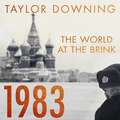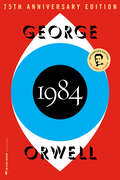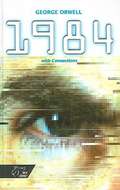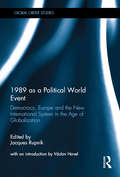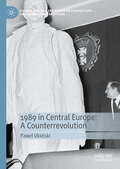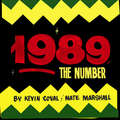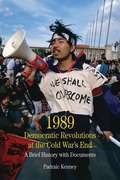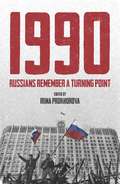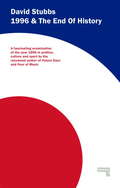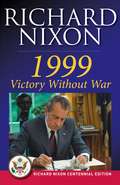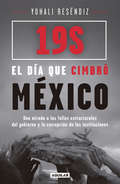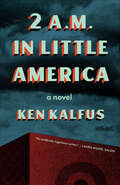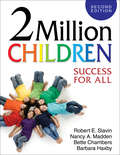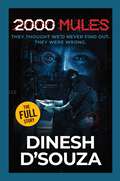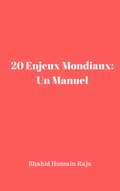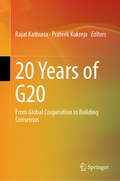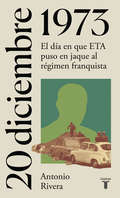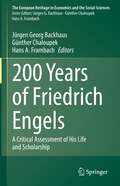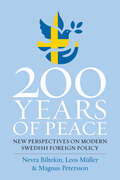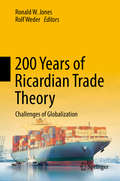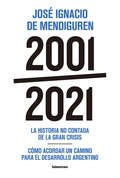- Table View
- List View
1983: The World at the Brink
by Taylor Downing1983 was a supremely dangerous year - even more dangerous than 1962, the year of the Cuban Missile Crisis. In the US, President Reagan massively increased defence spending, described the Soviet Union as an 'evil empire' and announced his 'Star Wars' programme, calling for a shield in space to defend the US from incoming missiles.Yuri Andropov, the paranoid Soviet leader, saw all this as signs of American aggression and convinced himself that the US really meant to attack the Soviet Union. He put the KGB on alert to look for signs of an imminent nuclear attack. When a Soviet fighter jet shot down Korean Air Lines flight KAL 007 after straying off course over a sensitive Soviet military area, President Reagan described it as a 'terrorist act' and 'a crime against humanity'. The temperature was rising fast.Then at the height of the tension, NATO began a war game called Able Archer 83. In this exercise, NATO requested permission to use the codes to launch nuclear weapons. The nervous Soviets convinced themselves this was no exercise but the real thing.This is an extraordinary and largely unknown Cold War story of spies and double agents, of missiles being readied, of intelligence failures, misunderstandings and the panic of world leaders. With access to hundreds of extraordinary new documents just released in the US, Taylor Downing is able to tell for the first time the gripping but true story of how near the world came to the brink of nuclear war in 1983.1983: The World at the Brink is a real-life thriller.
1984
by George OrwellA PBS Great American Read Top 100 Pick With extraordinary relevance and renewed popularity, George Orwell&’s 1984 takes on new life in this edition. &“Orwell saw, to his credit, that the act of falsifying reality is only secondarily a way of changing perceptions. It is, above all, a way of asserting power.&”—The New Yorker In 1984, London is a grim city in the totalitarian state of Oceania where Big Brother is always watching you and the Thought Police can practically read your mind. Winston Smith is a man in grave danger for the simple reason that his memory still functions. Drawn into a forbidden love affair, Winston finds the courage to join a secret revolutionary organization called The Brotherhood, dedicated to the destruction of the Party. Together with his beloved Julia, he hazards his life in a deadly match against the powers that be. Lionel Trilling said of Orwell&’s masterpiece, &“1984 is a profound, terrifying, and wholly fascinating book. It is a fantasy of the political future, and like any such fantasy, serves its author as a magnifying device for an examination of the present.&” Though the year 1984 now exists in the past, Orwell&’s novel remains an urgent call for the individual willing to speak truth to power.
1989 as a Political World Event: Democracy, Europe and the New International System in the Age of Globalization (Global Order Studies)
by Jacques RupnikThis book is not about the events of 1989, but about 1989 as a world event. Starting with the fall of the Berlin Wall and the collapse of the Soviet bloc it examines the historical significance and the world brought about by 1989. When the Cold War ended in Europe it ushered in a world in which the international agenda is set outside Europe, in America or Asia. The book critically examines and moves beyond some of the conveniently simple paradigms proposed in the nineties, by leading political scientists such as Fukuyama and Huntington, to show how the events of 1989 meant different things to different parties. This was an anti-utopian revolution, a symbol of the possibility of non-violent transitions to democracy, which raised the hopes of world-wide democratic changes. Contributors show how 1989 can be seen as the founding moment of a globalized world, but equal attention should be given to the dispersion of its meanings and the exhaustion of some of its main trends associated with the post-1989 era. Europe was reunited, yet it is in crisis. Twenty years on, global markets have brought about a global financial crisis. The fall of the Berlin Wall was celebrated as the advent of free movement in a world without borders. Now however, we can see that new borders, walls, fences have since been built. With an introductory essay by Vaclav Havel, 1989 as a Political World Event will be of interest to scholars of European Politics and International Relations.
1989 in Central Europe: A Counterrevolution (Central and Eastern European Perspectives on International Relations)
by Paweł UkielskiThe literature on the fall of communism contains numerous interpretations of the changes that took place in Central and Eastern Europe in 1989, while debates about how best to characterize the fall of the communist regimes have raged for many years. Researchers continue to ponder and argue over how ‘revolutionary’, as opposed to ‘evolutionary’ (or ‘reformatory’) these changes were. In this new study, author Paweł Ukielski proposes the term ‘counterrevolution’ to describe the historical process that took place and uses it as an analytical construct to better understand the crisis of Soviet communism and the subsequent transitions that took place.
1989, The Number
by Kevin Coval Nate Marshall1989, the number is an exploration of the year 1989 through politics, personal history and culture. This chapbook plays like a mixtape incorporating the hottest records and stories of 89 and reflecting their relevance for today.
1989: Democratic Revolutions At The Cold War's End - A Brief History With Documents (Bedford Cultural Editions)
by Padraic KenneyA series of democratic transformations in the 1980s ended the cold war and ushered in the present era. This volume by Padraic Kenney uses six case studies from this period — Poland, the Philippines, Chile, South Africa, Ukraine, and China — to explore common characteristics of global political change while highlighting the differing strategies and perspectives of the people who sought to free themselves from dictatorship. <p><p> A general introduction to the volume examines key trends in the decades leading up to the changes, tracing the paths that dictatorships and opposition movements took in their fateful confrontations. The first chapter with documents surveys the central ideas of this age of democratic, nonviolent revolution, and sets a framework for considering the case studies in the chapters that follow.
1990: Russians Remember a Turning Point
by Arch Tait Irina ProkhorovaAlthough 1989 and 1991 witnessed more spectacular events, 1990 was a year of embryonic change in Russia: Article 6 of the constitution was abolished, and with it the Party's monopoly on political power. This fascinating collection of documentary evidence crystalises the aspirations of the Russian people in the days before Communism finally fell. It charts - among many other social developments - the appearance of new political parties and independent trade unions, the rapid evolution of mass media, the emergence of a new class of entrepreneurs, a new openness about sex and pornography and a sudden craze for hot-air ballooning, banned under the Communist regime. 1990 is a reminder of the confusion and aspirations of the year before Communism finally collapsed in Russia, and a tantalising glimpse of the paths that may have been taken if Yeltsin's coup had not forced the issue in 1991.
1990: Russians Remember a Turning Point
by Arch Tait Irina ProkhorovaAlthough 1989 and 1991 witnessed more spectacular events, 1990 was a year of embryonic change in Russia: Article 6 of the constitution was abolished, and with it the Party's monopoly on political power. This fascinating collection of documentary evidence crystalises the aspirations of the Russian people in the days before Communism finally fell. It charts - among many other social developments - the appearance of new political parties and independent trade unions, the rapid evolution of mass media, the emergence of a new class of entrepreneurs, a new openness about sex and pornography and a sudden craze for hot-air ballooning, banned under the Communist regime. 1990 is a reminder of the confusion and aspirations of the year before Communism finally collapsed in Russia, and a tantalising glimpse of the paths that may have been taken if Yeltsin's coup had not forced the issue in 1991.
1991 How P. V. Narasimha Rao Made History: How P.v. Narasimha Rao Made History
by Sanjaya BaruP. V. Narasimha Rao (or PV as he was popularly known) has been widely praised for enabling the economic reforms that transformed the country in 1991. From the vantage point of his long personal and professional association with the former prime minister, bestselling author Sanjaya Baru shows how PV’s impact on the nation’s fortunes went way beyond the economy. This book is an insider’s account of the politics, economics and geopolitics that combined to make 1991 a turning point for India. The period preceding that year was a difficult one for India: economically, due to the balance of payments crisis; politically, with Rajiv Gandhi’s politics of opportunism and cynicism taking the country to the brink; and globally, with the collapse of the Soviet Union, its ally. It was in this period that the unheralded PV assumed leadership of the Indian National Congress, took charge of the central government, restored political stability, pushed through significant economic reforms and steered India through the uncharted waters of a post-Cold War world. He also revolutionized national politics, and his own Congress party, by charting a new political course, thereby proving that there could be life beyond the Nehru-Gandhi dynasty. 1991 marked the end of an era and the beginning of another. It was the year that made PV. And it was the year PV made history.
1996 And The End of History
by David Stubbs1996 And The End of History examines the year as it panned out in the UK not just in politics but in music, light entertainment and sport. It was the zenith of a decade which will go down as remarkably untroubled bymodern standards; following the collapse of the Berlin Wall, prior to 9/11, in which political conditions of peace and apparent economic prosperity created an overall mood of frivolity, postmodern anti-seriousness and a desire to get back to sunnier times before the grim onset of the strife-ridden 70's and 80's.
1999
by Richard M. Nixon(back of book) As America's elder statesman of foreign relations, former president Richard Nixon provides a blueprint for world peace in 1999: VICTORY WITHOUT WAR. Drawing on a lifetime of experience, Nixon outlines the key international problems Western leaders must face as this century of "war and wonder" comes to a close-- and explains how the United States can meet these challenges to make the twenty-first a century of real peace. "A FOREIGN POLICY TOUR DE FORCE-A CRISP COGENT, CAUTIONARY TALE ABOUT AMERICA'S DIRECTION IN A TOPSY-TURVY WORLD ....IN UNCOMMONLY SENSIBLE LANGUAGE, THE MAN WHO OPENED CHINA TO THE WEST, WHO FORGED DETENTE WITH THE RUSSIANS. AND WHO NEGOTIATED THE FIRST NUCLEAR DISARMAMENT TREATY DEMONSTRATES WHY HE HAS EARNED THE TITLE OF AMERICAN ELDER STATESMAN.... AT HIS MOST ELOQUENT, NIXON ARGUES FOR AN AMERICA THAT REMEMBERS ITS IDEOLOGICAL EDGE, AN AMERICA THAT WILLINGLY AND CREATIVELY ACCEPTS THE BURDEN OF WORLD LEADER. NEVER HAS NIXON BEEN MORE FASCINATING, MORE FORTHRIGHT, MORE PERSUASIVE IN HIS THINKING ABOUT OUR POLITICAL AND MORAL IMPERATIVES!' -- The Columbus Dispatch printed in USA.
1999: Victory Without War
by Richard Nixon"Nixon raises all the timely questions about the present state of the world, and then answers them both systematically and thoroughly." --The New York TimesIn this acclaimed national bestseller, Richard Nixon offers a comprehensive strategy for the West--a vital plan of action that will help ensure peace, prosperity, and freedom in the next century. From glasnost and summitry to arms control and "Star Wars," from Nicaragua and China to Europe and Japan, he gives seasoned, no-nonsense advice on all tough foreign policy issues. The former President draws on a lifetime of experience in international affairs to examine the crucial challenges facing the United States and the West and how best to go forward in the 21st century.
19S: El día que cimbró México
by Yohali ReséndizUna mirada a las fallas estructurales del gobierno y la corrupción de las instituciones. La coincidencia con el temblor de 1985: el mismo día y mes, no podía ser menos macabra y triste; pero, ¿qué dejó a los mexicanos este fenómeno de la naturaleza? ¿Cómo reaccionaron los gobiernos estatales y federal? ¿Qué lecciones de vida nos dio, una vez más, la sociedad? Yohali Reséndiz, experta en el análisis de problemas sociales, ofrece en este libro una serie de testimonios relevantes sobre quienes salieron a la calle a ayudar a sus semejantes y enfrentaron el desastre. Nos habla de los héroes anónimos que interrumpieron su asombro y dolor para compartir en brigadas y donativos su solidaridad. El libro deja en claro verdades impactantes: con el derrumbe de varios edificios se puso de manifiesto la corrupción del negocio inmobiliario; algunos grupos políticos retuvieron lasdonaciones con fines electorales y se descubrieron severas omisiones en el reglamento de construcciones. El gobierno nunca estuvo preparado para enfrentar el desastre y además reaccionó tarde. ¿Por qué el TEC de Monterrey, en la Ciudad de México, cerró la posibilidad de ayuda de voluntarios y se preocupó más por limpiar el desastre que por la solidaridad? 19S: El día que cimbró México destaca la participación desinteresada de ciudadanos de todas las esferas sociales, revela el pésimo manejo de algunos medios de comunicación ante el suceso -la historia lamentable de la inexistente niña Frida Sofía- y demuestra cómo a pesar de sus gobiernos corruptos, México se levanta de nuevo para denunciar y exigir justicia.
2 A.M. in Little America: A Novel
by Ken KalfusAs Americans flee widespread civil conflict, one young refugee ekes out a living in a suspenseful, darkly comic novel: “An important writer in every sense.” —David Foster WallaceAn Esquire “Best Book of Spring 2022” A Literary Hub “Most Anticipated Book of 2022” A San Francisco Chronicle “Most Anticipated Novel of 2022”In the future, sweeping civil disorder has forced America’s young people to flee its borders into an unwelcoming world. One such American is Ron Patterson, who finds himself on distant shores, working as a repairman and sharing a room with other refugees. In an unnamed city wedged between ocean and lush mountainous forest, Ron can almost imagine a stable life for himself. Especially when he makes the first friend he’s had in years—a mysterious migrant named Marlise, who bears a striking resemblance to a onetime classmate.Nearly a decade later—after anti-migrant sentiment has put their whirlwind intimacy and asylum to an end—Ron is living in “Little America,” an enclave of migrants in one of the few countries still willing to accept them. Here, among reminders of his past life, he again begins to feel that he may have found a home. He adopts a stray dog, observes his neighbors, and lands a new repairman job that allows him to move through the city quietly. But this newfound security, too, is quickly jeopardized, as resurgent political divisions threaten the fabric of Little America. Tapped as an informant against the rise of militant gangs and contending with the appearance of a strangely familiar woman, Ron is suddenly on dangerous and uncertain ground.Brimming with mystery, suspense, and Ken Kalfus’s distinctive comic irony, 2 A.M. in Little America poses questions vital to the current moment: What happens when privilege is reversed? Who is watching and why? How do tribalized politics disrupt our ability to distinguish what is true and what is not? This is a story for our time—gripping, unsettling, prescient—by an acclaimed National Book Award finalist.“My favorite book by one of America’s great living writers.” —Jonathan Safran Foer“A provocative dystopian story . . . takes hold of the reader.” —Publishers Weekly“A highly readable, taut novel.” —The New York Times Book Review“One of contemporary literature’s best-kept secrets.” —Esquire
2 Million Children: Success for All
by Robert E. Slavin Dr Nancy A Madden Margaret E. Chambers Barbara HaxbyBased on a program that has benefited over 2 million children, this updated edition outlines steps for school reform and achievement through prevention, intervention, and assessment to promote reading.
2,000 Mules: They Thought We'd Never Find Out. They Were Wrong.
by Dinesh D'SouzaAt last, bestselling author Dinesh D'Souza exposes the powerful evidence of voting fraud that you were told didn't exist. Also, a major motion picture documentary.THE FIX WAS IN The 2020 presidential election was rife with fraud orchestrated by the Democratic Party. That&’s not just an accusation; it&’s now, thanks to bestselling author and investigative journalist Dinesh D&’Souza, an established fact. With eyewitness testimony and the pinpoint precision and analytic sophistication of the forensic technique of geotracking, D&’Souza demonstrates how an already corrupt system put in place by Democratic Party hacks and &“community organizers&” was taken over and supercharged by national-level operatives to jeopardize the integrity of the election. The key figure: the mule. A paid cut-out. A criminal deliveryman. The stooge found at the intersection where election cheating and double-dealing hit the road. The mule is the crook who physically takes a sack of ballots provided by shady NGOs and political machines—the &“community activist organizations&” made famous by former President Obama, for instance—and dumps those ballots in collection boxes throughout a voting district. Do enough of this, and you have planted voter fraud across a nation. Documentary filmmaker extraordinaire and bestselling author of America, Death of a Nation, and United States of Socialism, Dinesh D'Souza exposes powerful evidence of the colossal voting racketeering that you were told didn&’t exist. Here you will find the receipts—the transcripts and confirmatory details—for the facts establishing 2020 election fraud presented in D&’Souza&’s major motion picture documentary, 2,000 Mules. D&’Souza makes a powerful argument that 2020 was a stolen election. More important, D&’Souza proves it.
20 Enjeux Mondiaux: Un Manuel
by Shahid Hussain RajaGlobal Issues : A handbook comprising 20 dissertations on varius activities to assist him.
20 Years of G20: From Global Cooperation to Building Consensus
by Rajat Kathuria Prateek KukrejaThe book discusses contemporary issues such as global financial architecture and regulatory practices, trade, investment and the multilateral process, the future of work, the role of technology for adaptation and mitigation of climate change, and financing infrastructure for sustainable development. With increasing global connectivity, events in one part of the world immediately affect or spread to the other parts. In this context, G20 has proved to be an effective forum, particularly after the Asian financial crises. Furthermore, over recent decades, G20 has been instrumental in managing financial crises and international conflicts by deploying global cooperation as a functional tool. As a body responding to crises, the G20 has played a central role in providing the political momentum for the strong international cooperation that ensured greater policy coherence and helped ease situations that could otherwise have been decidedly worse. The G20’s agendas have encompassed short-term but critical issues of economic recovery, the sovereign crisis of Europe, high unemployment and financial sector regulation. But since moderate stabilization in the global economic environment, the focus of the group has also embraced long-term areas of governance and development. For emerging economies, such as India, the G20 has been an important platform framework to promote an inclusive global economic architecture that seeks to achieve equitable outcomes. This book reviews the past 20 years of the G20, since it was conceptualized as a replacement for the G-7. While issues such as global financial order have been a constant area of discussion, one of the failures has been not recognizing and acknowledging the importance of issues like trade, climate change and future of work. Featuring academic papers by experts in the area, this book provides a platform for the necessary discourse on these issues.
20 de diciembre de 1973. Asesinato de Carrero Blanco
by Antonio RiveraNueva entrega de una colección única que cuenta nuestro largo siglo XX en 7 libros para 7 fechas clave. Solemos abordar la historia a partir de arcos de tiempo dilatados. Pero ¿qué sucede si, por una vez, centramos la atención en los instantes concretos que más han marcado nuestro pasado colectivo? Los protagonistas, sus acciones, sus emociones, sus deseos, sus dudas y sus errores pasan al centro del relato, irrumpen con la fuerza de la imprevisibilidad, y los revivimos como si fuera la primera vez. En esta novedosa colección, algunos de los mejores historiadores nos muestran que nada puede darse por sentado, y cómo ciertos acontecimientos pueden dejar un rastro profundo en un país. El éxito de la Operación Ogro, organizada para asesinar a Luis Carrero Blanco, proyectó a ETA (nacional e internacionalmente) en una senda de prestigio iniciada tres años antes con las protestas contra el juicio de Burgos y las condenas a muerte. La organización, cuya primera intención era superar al nacionalismo tradicional, al que acusaba de pasividad, apareció como referencia principal del antifranquismo al obstaculizar su continuidad. A la vez, la violencia política se legitimó como recurso y se mantuvo en el tiempo. Gracias al éxito del atentado, acabado el franquismo, lo más problemático que nos quedó de él fue precisamente la continuidad de ETA.
200 Years of Friedrich Engels: A Critical Assessment of His Life and Scholarship (The European Heritage in Economics and the Social Sciences #25)
by Jürgen Georg Backhaus Günther Chaloupek Hans A. FrambachThis edited volume discusses the life and scholarship of Friedrich Engels. Written to commemorate the two-hundred-year anniversary of Engels’ birth, the contributions take a look into his research from a variety of viewpoints, trace the influence of his predecessors, and critically evaluate his place within 19th century scholarship. In addition, specific topics are taken up, such as his (mis)assessment of American capitalism, his influence on the Italian labor movement, the thematization of social problems and the relevance of his thought in a global economy. Providing a fresh look at the co-founder of scientific socialism, this volume will be of interest to researchers and students of contemporary political, social and economic systems, the history of economic thought, and political history.
200 Years of Peace: New Perspectives on Modern Swedish Foreign Policy
by Magnus Petersson Nevra Biltekin, Leos MüllerSince 1814 Sweden has avoided involvement in armed conflicts and carried out policies of non-alignment in peacetime and neutrality during war. Even though the Swedish government often describes Sweden as a ‘nation of peace’, in 2004 the 200-year anniversary of that peace passed by with barely any attention. Despite its extraordinary longevity, research about the Swedish experience of enduring peace is underdeveloped. 200 Years of Peace places this long period of peace in broader academic and public discussions surrounding claimed Swedish exceptionality as it is represented in the nation’s social policies, expansive welfare state, eugenics, gender equality programs, and peace.
200 Years of Ricardian Trade Theory: Challenges of Globalization
by Ronald W. Jones Rolf WederThis book offers a comprehensive and insightful reflection on David Ricardo's ingenious theory of international trade. Divided into three parts, Part I presents the "birthday boy", his concept and the many applications and insights that have been derived from it, particularly in modern times. Part II explores in depth important aspects of the Ricardian trade theory through the eyes and experience of leading experts on international trade theory, taking into account the latest research in the field. Lastly, Part III discusses critique and shortcomings of the existing trade theory and proposes future developments in the light of the current globalization challenges.
2001 - 2021. La historia no contada de la gran crisis - Cómo acordar un camino para el desarrollo argentino
by José Ignacio de Mendiguren2001: la historia no contada de la gran crisis, la debacle de la convertibilidad y la lucha contra el impulso dolarizador que puso en peligro la soberanía nacional.2021: veinte años después, la revalorización del presente y un llamado a acordar el camino al desarrollo y al progreso argentinos. Este libro revela la historia no contada del proceso que desemboca y estalla en la gran crisis de 2001. Protagonista insoslayable de aquellos días, José Ignacio de Mendiguren, por entonces presidente de la Unión Industrial Argentina, y al poco tiempo primer ministro de Producción de la Nación, traza aquí la crónica de una muerte anunciada mucho antes que lo había encontrado batallando primero contra el modelo de la convertibilidad de los 90 y después contra la fenomenal presión en favor de la dolarización del 2000. Releer el 2001 a la luz de su mirada sirve para completar la comprensión del drama pasado, pero sobre todo para revalorizar el potencial del presente y plantear los desafíos del futuro. En efecto, a veinte años de ese punto de inflexión en la historia argentina contemporánea, Mendiguren propone consensuar un rumbo que permita al país reencontrar su destino soberano y encaminarse al desarrollo inclusivo por el que ha venido bregando a lo largo de su dilatada trayectoria tanto en el ámbito privado como en el público.
2002 Assessment of the Office of Naval Research's Air and Surface Weapons Technology Program
by Committee for the Review of ONR's Air Surface Weapons Technology ProgramThe 2002 Assessment of the Office of Naval Research's Air and Surface Weapons Technology Program
